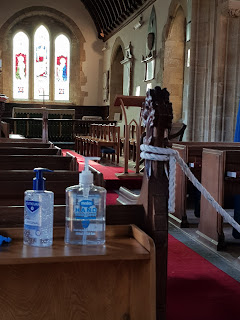No sense

Make straight paths (Mark 1:3) Something puzzles me. For a nation that practically invented queueing, it is odd to see rules being flouted everywhere you look. From back-garden parties, to stay-over relatives, from beach invasions to street raves, it seems we've given up on lockdown. What does this mean? Well, for one the Brits do not take kindly to privilege. Oh, they love royalty and are surprisingly comfortable with some sort of elite (two of the last three PMs went to Eton), but they hate one rule for some and another for everybody else. As soon as Boris failed to sack Cummings the writing was on the wall for lockdown compliance. Mates rates are okay, but mates rules are not. More than that, rules only work if they make sense. Old people (high risk) are allowed to visit overnight with their working offspring (high contagion), while students (low risk) are not allowed to meet up with their friends (equally low risk). Groups of 30 or more can meet in a religious building, but you...







